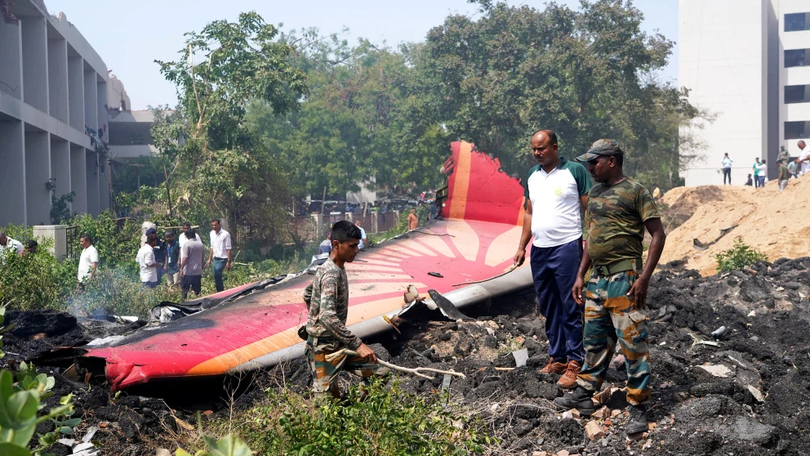Families of Air India crash victims take legal action

The families of four passengers killed in the June 12 crash of an Air India Boeing 787 said in a lawsuit that the accident resulted from allegedly faulty fuel switches, which the US Federal Aviation Administration has said do not appear to have caused the accident that killed 260 people.
The lawsuit filed Tuesday in Delaware Superior Court blames Boeing and Honeywell, which made the switches, for the crash seconds after Flight 171 took off for London from the Indian city of Ahmedabad.
The plaintiffs point to a 2018 FAA advisory that recommended, but did not mandate, that operators of several Boeing models, including the 787, inspect the fuel cutoff switches’ locking mechanism to ensure it could not be accidentally moved.
Sign up to The Nightly's newsletters.
Get the first look at the digital newspaper, curated daily stories and breaking headlines delivered to your inbox.
By continuing you agree to our Terms and Privacy Policy.A preliminary investigation report into the crash by India’s Aircraft Accident Investigation Bureau said that Air India had not conducted the suggested inspections, and that maintenance records showed that the throttle control module, which includes the fuel switches, was replaced in 2019 and 2023 on the plane involved in the crash.
The report noted “all applicable airworthiness directives and alert service bulletins were complied with on the aircraft as well as engines”.
Boeing declined to comment, and Honeywell did not immediately respond to a request for comment.
A cockpit recording of dialogue between the jet’s two pilots suggests that the captain cut the flow of fuel to the plane’s engines, as Reuters previously reported.
The lawsuit maintains that the switches are in a place in the cockpit where they were more likely to be inadvertently pushed, which “effectively guaranteed that normal cockpit activity could result in inadvertent fuel cutoff”.
However, aviation safety experts told Reuters that they could not be accidentally flipped based on their location and design.
The lawsuit appears to be the first in the United States over the crash.
It seeks unspecified damages for the deaths of Kantaben Dhirubhai Paghadal, Naavya Chirag Paghadal, Kuberbhai Patel and Babiben Patel, who were among the 229 passengers who died.
Twelve crew members and 19 people on the ground were also killed. One passenger survived. The plaintiffs are citizens of and live in either India or Britain.
Indian investigators’ preliminary report appeared to exonerate Boeing and engine maker GE Aerospace, but some family groups have criticised investigators and the news media as too focused on the pilots’ actions.
Although most accidents are caused by a combination of factors, legal experts say lawyers representing victims’ families tend to target manufacturers because they do not face the same limits on liability enjoyed by airlines. Such strategies can also increase the prospect of using U.S. courts, which are widely seen as more generous to plaintiffs than many foreign courts.
Originally published on Reuters
